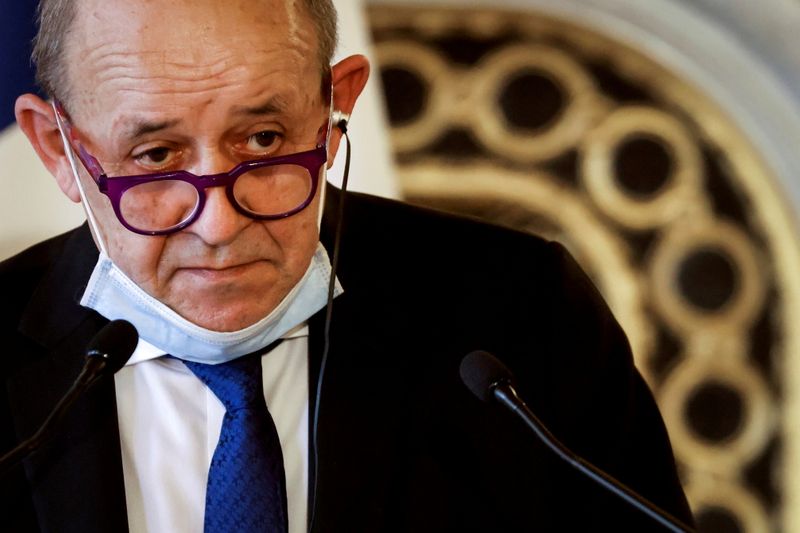By John Irish
PARIS (Reuters) -France’s foreign minister said on Wednesday he would carry a strongly worded message to Lebanese politicians when he visits Beirut on Thursday and warned of punitive measures against those who are hindering the political progress.
The trip comes after Paris said it had started putting in place measures to restrict entry to France for some Lebanese officials on the grounds that they were blocking efforts to find a solution to Lebanon’s political and economic crisis.
“Firmness for those who block the formation of a government: We have taken national measures, and it is only the beginning,” Jean-Yves Le Drian said on Twitter without providing details.
However, until now there has been no official announcement on what measures have actually been taken, if any, and against whom. French officials have declined to comment or respond to requests for details.
France has spearheaded international efforts to rescue Lebanon from its deepest crisis since the 1975-1990 civil war, but after eight months has failed so far to persuade squabbling politicians to adopt a reform road map or form a new government to unlock international aid.
Le Drian has said the national measures would cover access to French territory.
It is not clear how much impact such measures would have as several key Lebanese actors have dual nationality and could not be restricted, while others who could be accused of hindering the political process travel rarely to France.
Diplomats have said the national punitive measures could also have a negative impact by hardening positions in Beirut.
However, they say that France’s opaque announcements could be aimed at focusing minds at European Union level, where Paris is hoping a new sanctions regime for Lebanon will be created that could ultimately see more impactful asset freezes and travel bans.
That, however, is likely to take time, diplomats have said.
Le Drian is set to meet President Michel Aoun and Shi’ite Hezbollah ally and Speaker of the Parliament Nabih Berri, although officials have declined to confirm a meeting with Prime Minister-designate Saad al-Hariri.
He has also asked to meet Gebran Bassil, the leader of Lebanon’s biggest Christian political bloc and Aoun’s son-in-law, who is under U.S. sanctions for alleged corruption and his ties to Hezbollah.
(Additional reporting by Ellen Francis in Beirut; Editing by Chris Reese and Giles Elgood)






















